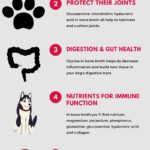How To Treat Coccidia In Dogs Naturally
Treating Coccidia in Dogs Naturally: Tips and Strategies to Help Your Canine Companion Recover
Coccidia is a common parasite that can infect dogs, especially puppies and dogs kept in crowded or unclean environments. Coccidia can cause diarrhea, vomiting, weight loss, dehydration, and other symptoms that can be severe if left untreated. While conventional treatments for coccidia involve drugs that can have side effects or may not work for all dogs, there are natural remedies and preventive measures that you can try to support your dog’s immune system and reduce the risk of coccidia infection. In this article, we will explore some of the best practices for treating coccidia in dogs naturally.
Understanding Coccidia: What it is and How it Affects Dogs
Coccidia are microscopic single-celled organisms that belong to the family Eimeriidae. There are several species of coccidia that can infect dogs, but the most common ones are Isospora spp. and Eimeria spp. These parasites live in the intestines of infected animals and reproduce by shedding oocysts (eggs) in their feces. When other animals ingest these oocysts through contaminated food, water, or soil, they can become infected with coccidia too.
Most dogs infected with coccidia do not show any symptoms or only mild signs of illness. However, puppies under six months old, senior dogs, or dogs with weakened immune systems may be more susceptible to coccidiosis, a disease caused by excessive coccidian infestation. The symptoms of coccidiosis include:
– Diarrhea (often with mucus or blood)
– Vomiting
– Lack of appetite
– Weight loss
– Dehydration
– Lethargy
– Fever
If you suspect your dog has coccidiosis or any other serious health condition, always consult your veterinarian for proper diagnosis and treatment.
Natural Remedies for Coccidia: What Works and What Doesn’t
When it comes to treating coccidia in dogs naturally, there are many claims and opinions online that can be confusing or misleading. Some common remedies that people suggest for coccidia include:
– Probiotics: These are beneficial bacteria that can help restore the balance of gut flora in dogs. While probiotics may have some benefits for overall digestive health, they have not been proven to cure coccidia or prevent reinfection.
– Apple cider vinegar: This is a popular home remedy for various ailments in humans and animals. However, there is no scientific evidence that apple cider vinegar can kill coccidia or improve the immune system of dogs.
– Garlic: This herb has been used as a natural dewormer and immune booster by some pet owners. However, garlic can be toxic to dogs in high doses and may also interfere with blood clotting. Therefore, it is not recommended as a treatment for coccidia.
– Herbal supplements: There are many herbal products marketed as natural alternatives to conventional drugs for coccidia. However, these supplements may contain untested or unsafe ingredients that could harm your dog. Always check with your vet before giving any new supplement or medication to your dog.
So, what can you do to treat coccidia in dogs naturally? Here are some strategies that have shown promise in reducing the severity and duration of coccidian infections:
1. Boost your dog’s immunity naturally
One of the best ways to prevent and treat coccidian infection is to strengthen your dog’s immune system. You can do this by providing a balanced diet rich in nutrients (especially protein), regular exercise, fresh water, and enough rest. Also, avoid exposing your dog to stressful situations or environments that may weaken its immune response.
2. Clean and disinfect your dog’s living area
Since coccidia can survive for weeks in moist and warm environments, it is crucial to keep your dog’s living area clean and dry. Clean up any feces promptly and dispose of them properly. Use a disinfectant that is safe for dogs (e.g., diluted bleach, hydrogen peroxide) to sanitize the surfaces and objects that your dog comes into contact with. Wash your dog’s bedding, toys, and bowls regularly with hot water and soap.
3. Use natural remedies that have scientific evidence
While most natural remedies for coccidia lack scientific proof, some have been shown to have antiparasitic or anti-inflammatory properties that may benefit dogs. Here are some examples:
– Pumpkin seeds: These seeds contain compounds that can paralyze and expel intestinal parasites like coccidia. You can feed your dog fresh or roasted pumpkin seeds as a treat or sprinkle ground pumpkin seeds on its food.
– Turmeric: This spice has potent anti-inflammatory and antioxidant effects that may help reduce the damage caused by coccidian infection in dogs. You can add turmeric powder to your dog’s food or make a paste with coconut oil and apply it topically to any inflamed areas on the skin or in the mouth.
– Manuka honey: This type of honey has unique antibacterial and antiviral properties that may also work against coccidia. You can give your dog small amounts of manuka honey (not regular honey) as a supplement or apply it topically to wounds or ulcers.
4. Monitor your dog’s health closely
If you suspect that your dog has coccidia or any other health issue, don’t wait too long to seek professional help. Early diagnosis and treatment are crucial for preventing complications and improving outcomes. Also, pay attention to any changes in your dog’s behavior, appetite, bowel movements, or energy levels, as these could be signs of coccidiosis or other conditions.
Conclusion
Coccidia is a common parasite that can affect dogs of all ages and breeds. While conventional treatments for coccidia involve drugs that may have risks and limitations, there are natural remedies and preventive measures that you can try to support your dog’s immune system and reduce the risk of infection. By following the tips and strategies outlined in this article, you can help your canine companion recover from coccidia naturally and safely. Remember to always consult your veterinarian before trying any new treatment or remedy for your dog.



